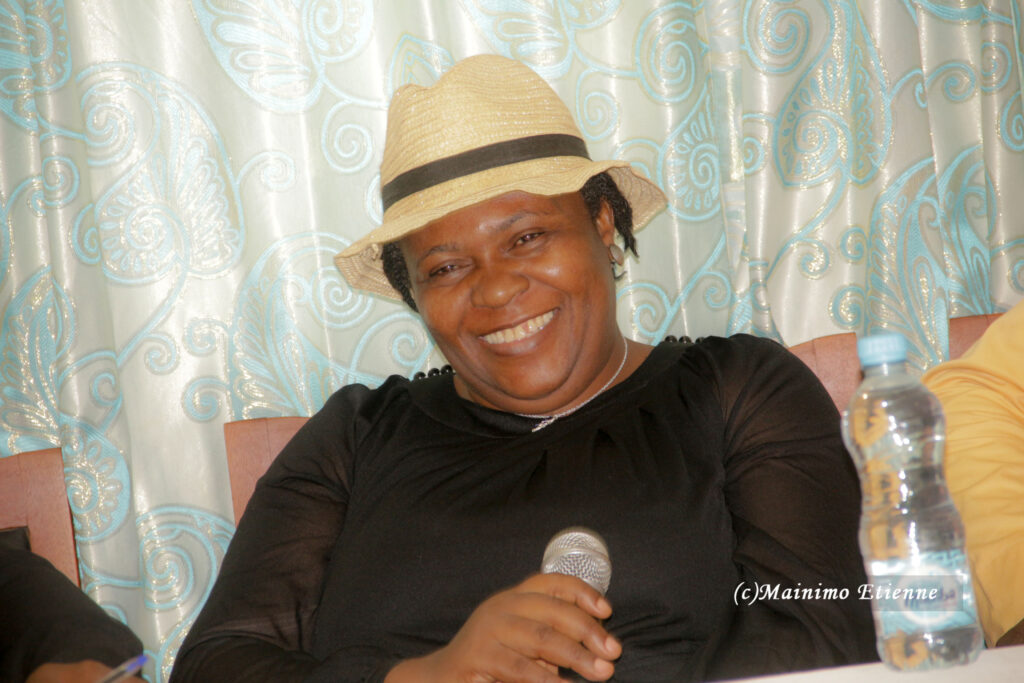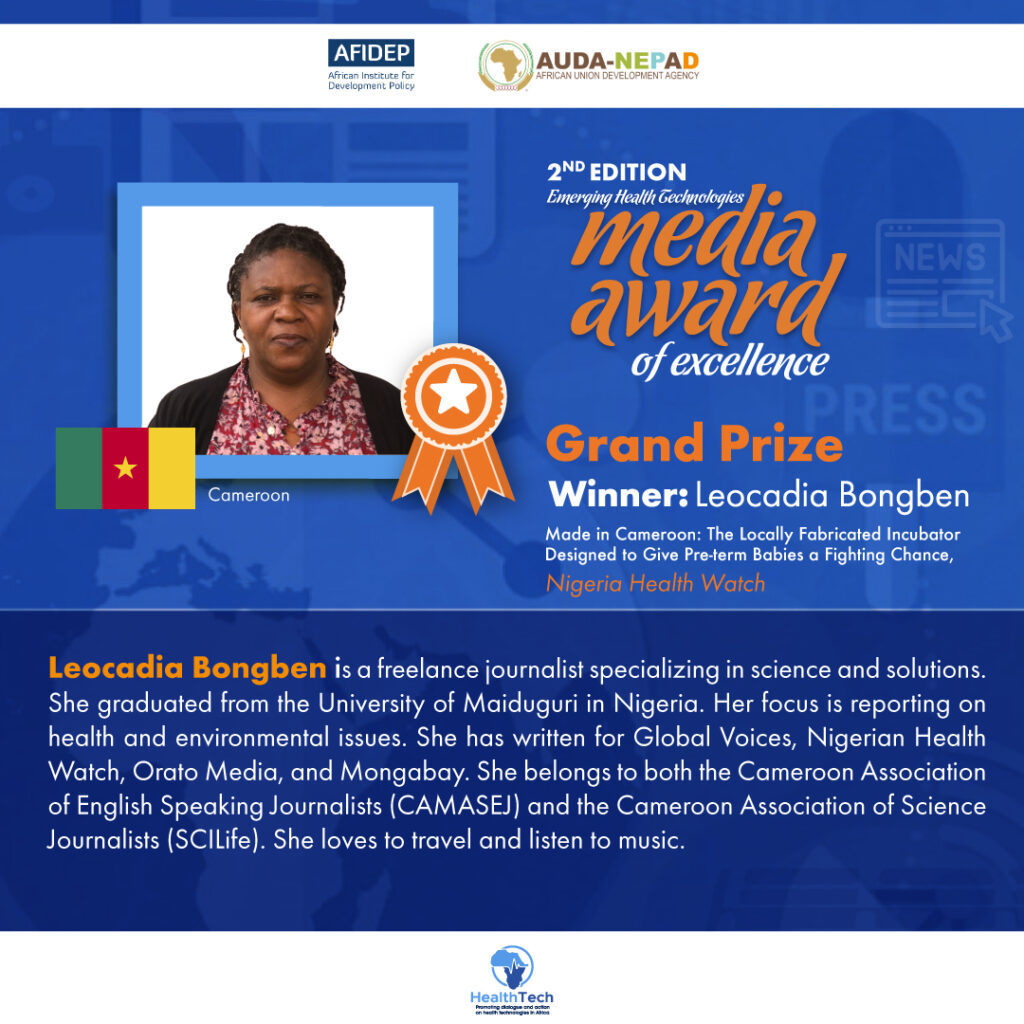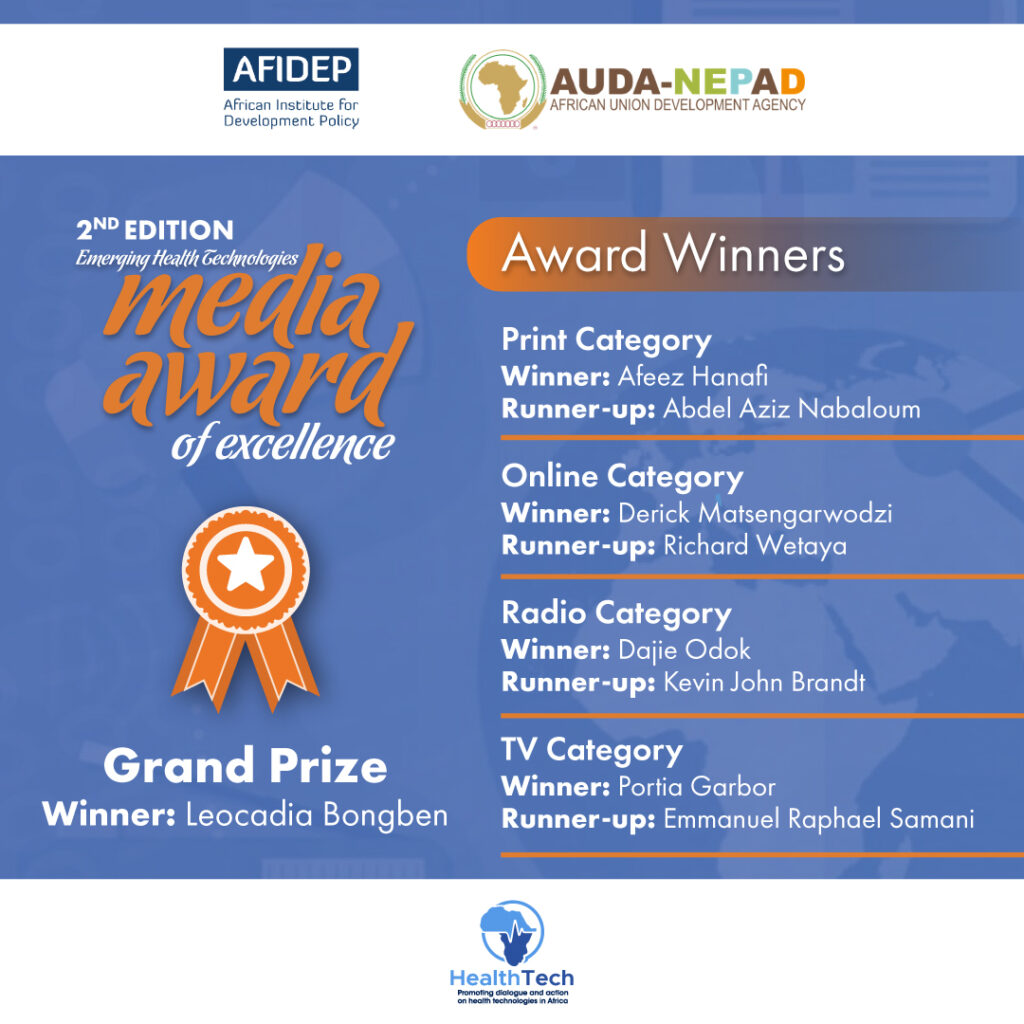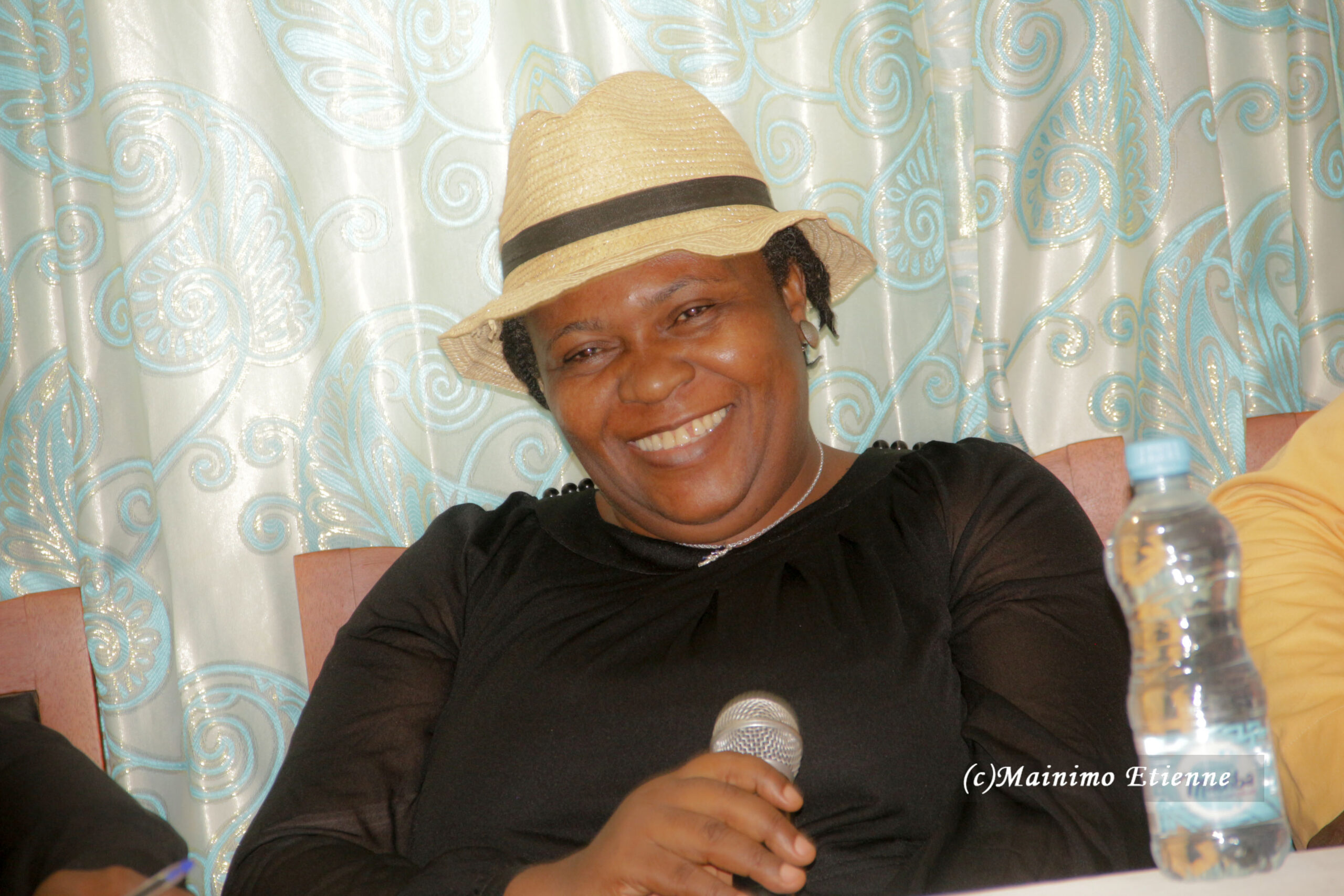By Etienne Mainimo Mengnjo
Leocadia Bongben, a Cameroonian freelance journalist specialized in science and solutions, has won the Grand Prize of the 2nd edition of the Health Technologies Media Award of Excellence.

The award was recently bestowed upon her for her article, “Made in Cameroon: The Locally Fabricated Incubator Designed to Give Pre-term Babies a Fighting Chance,” published in Nigeria Health Watch.
Organized by the Platform for Dialogue and Action on Health Technologies in Africa (Health Tech Platform) and the African Institute for Development Policy (AFIDEP), the award recognizes exceptional journalism that raises public awareness and understanding of emerging health technologies (EHTs) in Africa.
Speaking after the announcement, Leocadia Bongben said, “I am honoured to emerge as Grande Prize of this prestigious award. It is an encouragement to unearth more underreported solutions.”

“I dedicate the Award to Nigeria Health Watch for encouraging rigourous journalism as one of the early pioneers of Solutions Journalism.”
Leocadia Bongben’s article seek to showcase innovation in health techologies through a solution, how it works but also the limitations.
In the Print category, Afeez Hanafi emerged as the winner, while Abdel Aziz Nabaloum was the runner-up. In the online category, Derick Matsengarwodzi took the top spot, with Richard Wetaya as the runner-up.
In the Radio category, Dajie Odok was the winner, and Kevin John Brandt was the runner-up. In the TV category, Portia Garbor won, while Emmanuel Raphael Samani was the runner-up.
The annual EHTs Media Award aims to promote quality reporting on emerging health technologies being developed for use in Africa.

It also seeks to raise public awareness, understanding, participation, and local ownership of these technologies.
The award focuses on emerging health technologies prioritized by the African Union as having the potential to significantly impact disease and health in Africa if well developed, tested, and deployed.
These technologies include gene drives and monoclonal antibodies for malaria control, drones, microgrids, artificial intelligence, gene editing, and next-generation medicine.

